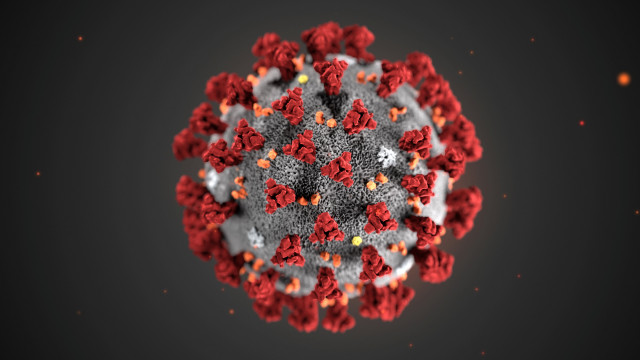Contagion: Punjab govt tightens coronavirus monitoring
Passengers arriving at international terminal to go through thermal scanners

Coronavirus. PHOTO: REUTERS
The Civil Aviation Authority (CAA) has directed all airports to scan and monitor every passenger coming at the international terminal. A senior official of the CAA said the Lahore airport was equipped with a thermal scanner and thermal guns which help authorities identify passengers having high body temperature, which is a basic symptom of coronavirus infection.
“Though no infected passenger has been detected with coronavirus symptoms, screening of every passenger entering Pakistan is mandatory,” he said. “The health department officials are performing scanning duty in collaboration with the CAA, which is providing logistic support. Any passenger found with symptoms of coronavirus will be shifted directly to the Lahore Services Hospital or Mayo Hospital where special isolation wards have been set up,” he disclosed.
He highlighted that as festivities in China have concluded, the Chinese nationals working on various projects in Pakistan such as Metro train, power plants and the China-Pakistan Economic Corridor (CPEC), are returning to their jobs.
In a recent meeting, Punjab Chief Secretary Major (retd) Azam Suleman Khan ordered proper screening of Chinese and other people be conducted as per the SOPs issued by the federal government. Secretary Specialised Healthcare Nabeel Awan told the meeting’s participants that at present there is no coronavirus patient in the country, adding that at a divisional level, high dependency units have been established in one hospital each, where trained doctors and paramedics would provide healthcare to the suspected coronavirus patients.
The meeting reviewed the strategy to adopt preventive measures against coronavirus and allay concerns and fears of people in this regard.
The provincial government has also started the medical examination of the Chinese nationals working on the Orange Line Metro Train (OLMT) and other projects across Punjab.
Officials of the health department are also visiting residences of the Chinese nationals in the provincial capital. However, no coronavirus infected patient has been detected so far.
Punjab health department has advised the healthcare workers to strictly adhere to hygiene before and after touching a patient, before clean or aseptic procedures, after coming in contact with patient surroundings and body fluids. The department said they should practice good cough etiquette (ie cough on your sleeve or use a tissue paper or cloth to cover your mouth), dispose of used tissue paper in bins, refrain from spitting in your surroundings and use waste bins.
The health workers have been advised to avoid close contact with people with respiratory illnesses and avoid touching their eyes, nose or mouth with unwashed hands. Instructions have been issued that if a suspected case is received in a hospital, the front desk staff should offer a surgical mask to the patient and advise him or her regarding cough etiquette. All healthcare workers evaluating the suspected patient must wear personal protective equipment (PPE) before evaluating the patient.
For all suspected patients, standard, contact and droplet precautions (use gloves, gowns and surgical masks) must be used. Patients undergoing aerosol-generating procedures must be placed in standard, contact and airborne precautions (use gloves, gown and N-95 masks).
Eye protection with goggles or face shield is essential while managing all such patients. Disposable devices should be used when available. If such devices are not available, dedicated equipment must be used for these patients; if this is not possible, disinfect all patient care equipment before using on another patient.
As the coronavirus incubation period is 14 days, Punjab Health Department officials advised that the possibility of coronavirus infection must be considered in patients with fever, cough, shortness of breath along with travel history to China in the last 14 days or contact with an infected patient within the last 14 days.
Meanwhile, the Water and Sanitation Agency (WASA) has decided to increase chlorine dozing in water supply in the provincial capital as a precautionary measure to minimise the risk of coronavirus.
Chlorination is a traditional process to kill certain bacteria and other microbes in tap water as chlorine is highly toxic. In particular, chlorination is used to prevent the spread of waterborne diseases such as cholera, dysentery and typhoid.



















COMMENTS
Comments are moderated and generally will be posted if they are on-topic and not abusive.
For more information, please see our Comments FAQ